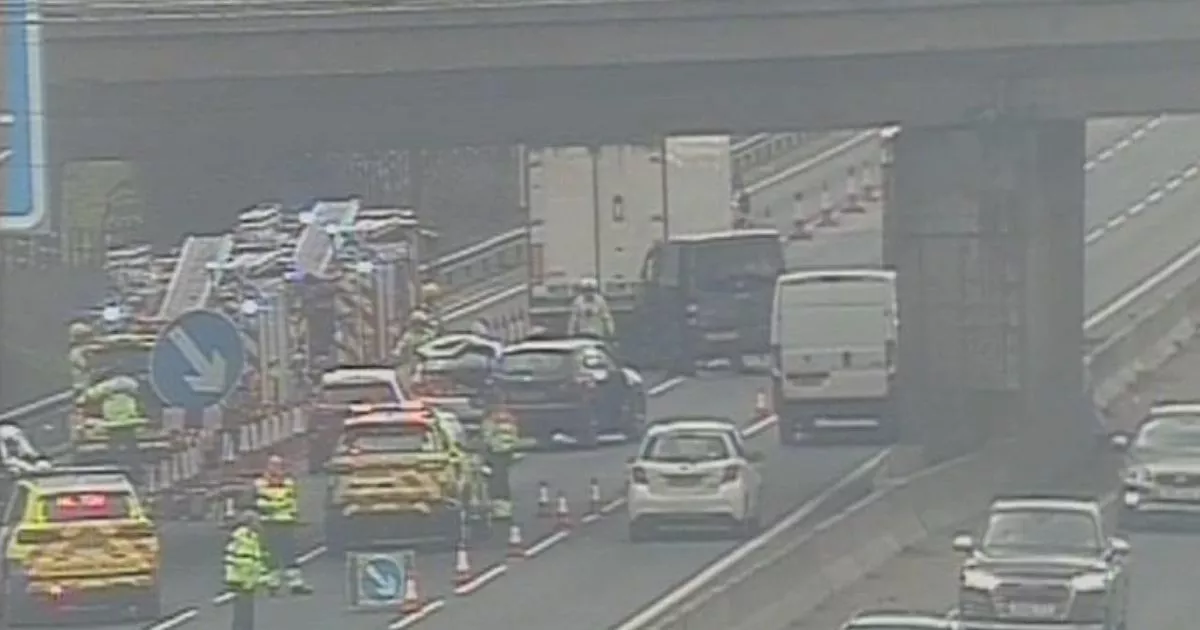Your Escape To The Country: A Step-by-Step Relocation Plan

Table of Contents
Financial Planning for Your Country Relocation
Before you even start browsing idyllic farmhouses, solid financial planning is crucial for a successful country relocation. Understanding your budget and securing appropriate financing are paramount.
Assessing Your Budget:
Determining your realistic budget is the first step in your rural relocation journey. Many overlook the unique financial considerations of country living. Don't let hidden costs derail your dream.
- Research average property prices: Use online real estate portals and consult local real estate agents to get a realistic picture of property values in your target area. Consider factors like property size, acreage, and location within the rural area. Prices can vary significantly even within a small region.
- Factor in closing costs, legal fees, and taxes: These often-overlooked expenses can add a substantial amount to your overall cost. Get quotes from lawyers and title companies specializing in rural property transactions. Understand property tax rates in your target area, as they can differ significantly from urban areas.
- Account for potential hidden costs: Rural properties often come with unique maintenance challenges. Well maintenance, septic system repairs, and heating costs (especially in colder climates) can be significantly higher than in urban areas. Factor in potential upgrades or repairs to existing structures.
- Create a detailed budget spreadsheet: Track every expense, from initial research to final closing costs and ongoing maintenance. This will help you stay organized and avoid unexpected financial surprises during your country relocation.
Securing Financing:
Securing the necessary financing for your country relocation can be more complex than obtaining a city mortgage. Rural properties often require specialized lending options.
- Compare interest rates and loan terms from multiple lenders: Don't settle for the first offer. Shop around and compare rates from different banks and credit unions, including those specializing in agricultural or rural loans.
- Understand the requirements for rural property loans: Lenders often have stricter requirements for rural properties, so ensure you meet all necessary criteria. This might involve higher down payments or stricter appraisal requirements.
- Explore government programs or grants: Several government programs offer assistance for rural development and relocation. Research available options in your area to see if you qualify for any financial aid.
Finding Your Ideal Country Property
Finding the perfect property is a key component of your successful country relocation. This requires careful consideration of your needs and wants, as well as leveraging the expertise of a local real estate agent.
Defining Your Needs and Wants:
Before you begin your property search, take time to define your must-haves and your nice-to-haves. This will streamline your search and prevent wasted time and energy.
- Create a detailed checklist of your property requirements: Consider factors like property size, acreage, proximity to schools, healthcare facilities, and your desired commute time. List essential features, such as a specific number of bedrooms or a workshop.
- Research different rural areas: Explore various rural locations to determine which best suits your lifestyle and preferences. Consider factors like community size, access to amenities, and the overall feel of the area.
- Consider commute times: If you plan to maintain a job outside your new rural location, factor in commute times and potential traffic congestion. A longer commute can significantly impact your lifestyle.
Working with a Real Estate Agent:
A local real estate agent specializing in rural properties is invaluable. They possess local market knowledge and can navigate the nuances of rural property transactions.
- Look for an agent with experience in the specific rural area you're targeting: Local expertise is crucial, as market conditions and property types can vary greatly between regions.
- Discuss your needs and budget openly with your agent: Transparent communication is key to a successful search. Your agent can help you find properties that meet your needs and stay within your budget.
- Utilize online property search portals, but rely on your agent for local expertise: Online portals provide a broad overview, but your agent provides invaluable local knowledge, insights into hidden gems, and guidance through the complexities of rural property transactions.
The Practicalities of Your Country Move
The actual move and settling into your new life require careful planning and preparation. Addressing the practicalities will make your transition smoother.
Arranging the Move:
Moving to the country often presents unique logistical challenges. Careful planning is essential to avoid added stress.
- Get multiple quotes from moving companies or rent a moving truck: Compare prices and services based on the distance, the amount of your belongings, and any special requirements.
- Purge unnecessary belongings to minimize moving costs: A rural relocation is an excellent opportunity to declutter. Reducing the amount you need to move will save you both time and money.
- Coordinate utilities connections and address changes: Arrange for the disconnection of utilities at your old residence and the connection of utilities at your new rural property. Inform relevant parties of your address change.
Settling into Your New Life:
Adjusting to life in the country takes time and patience. Be prepared for some differences compared to urban living.
- Research local services and amenities: Familiarize yourself with local healthcare providers, grocery stores, and other essential services.
- Connect with your neighbors and become involved in the community: Rural communities are often close-knit, and building relationships with your neighbors will make your transition more enjoyable. Attend local events and participate in community activities.
- Be patient and allow time to adjust to your new surroundings: Embrace the slower pace of life and the new challenges and rewards that rural living offers.
Conclusion
Relocating to the country is a significant undertaking, but with careful planning and preparation, your dream of a peaceful country escape can become a reality. By following these steps and addressing the key financial, property, and logistical considerations, you can navigate the country relocation process smoothly and confidently. Start planning your own country relocation today and embrace the tranquility and freedom of rural living! Don't delay your dream – begin your rural relocation journey now!

Featured Posts
-
 Major Road Closed After Serious Accident One Person Hospitalized
May 24, 2025
Major Road Closed After Serious Accident One Person Hospitalized
May 24, 2025 -
 The Escape To The Country Investment Nicki Chapmans 700 000 Property Story
May 24, 2025
The Escape To The Country Investment Nicki Chapmans 700 000 Property Story
May 24, 2025 -
 Apresentacao Oficial Ferrari 296 Speciale E Seu Motor Hibrido De 880 Cv
May 24, 2025
Apresentacao Oficial Ferrari 296 Speciale E Seu Motor Hibrido De 880 Cv
May 24, 2025 -
 Massachusetts Gun Trafficking Ring Dismantled 18 Brazilian Nationals Charged
May 24, 2025
Massachusetts Gun Trafficking Ring Dismantled 18 Brazilian Nationals Charged
May 24, 2025 -
 M6 Drivers Face Significant Delays Following Van Crash
May 24, 2025
M6 Drivers Face Significant Delays Following Van Crash
May 24, 2025
Latest Posts
-
 Amsterdam Stock Index Plunges Over 4 Hits Year Low
May 24, 2025
Amsterdam Stock Index Plunges Over 4 Hits Year Low
May 24, 2025 -
 Euronext Amsterdam Stock Market Reaction 8 Gain After Trumps Tariff Announcement
May 24, 2025
Euronext Amsterdam Stock Market Reaction 8 Gain After Trumps Tariff Announcement
May 24, 2025 -
 8 Stock Market Increase On Euronext Amsterdam Impact Of Trumps Tariff Decision
May 24, 2025
8 Stock Market Increase On Euronext Amsterdam Impact Of Trumps Tariff Decision
May 24, 2025 -
 Trumps Tariff Delay Sends Euronext Amsterdam Stocks Soaring 8
May 24, 2025
Trumps Tariff Delay Sends Euronext Amsterdam Stocks Soaring 8
May 24, 2025 -
 11 Drop In Three Days Amsterdam Stock Exchange In Freefall
May 24, 2025
11 Drop In Three Days Amsterdam Stock Exchange In Freefall
May 24, 2025
